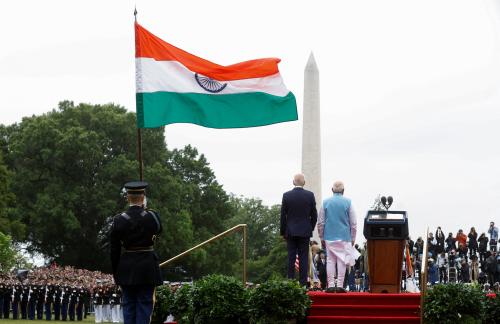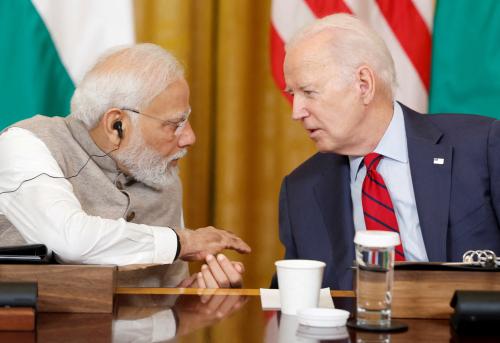U.S. Treasury Secretary Tim Geithner’s visit to Brazil appears to be the launching pad of a renewed era of U.S.-Brazil relations. The visit comes after recent notable differences between the Obama and Lula administrations, the most conspicuous of which was the disagreement on the way to handle Iran’s nuclear program.
Other contentious issues were more regional in scope, such as Washington’s willingness to accept the election results in Honduras and the U.S. agreement to use military bases in Colombia (both of which Brazil opposes). In addition, trade issues, from intellectual property and pharmaceuticals to U.S. subsidies for cotton growers and ethanol producers, complicated the bilateral agenda during the last years of the Lula administration.
In this context and despite her affinity to Lula, Brazil’s newly-elected president, Dilma Rousseff, has taken careful steps to highlight her administration’s willingness to re-calibrate the U.S.-Brazil relationship. Surprising many analysts, Rousseff has spoken with a new voice and is bringing fresh air to the bilateral relationship.
The announcement of President Obama’s trip to Brazil is a clear sign that Washington got the message. Under Rousseff’s tutelage, Brazil’s Foreign Ministry has ordered its embassies and UN mission to prepare a review assessing the state of Brazilian foreign policy. The report will address human rights in countries with authoritarian regimes and also focus on Brazil’s relationship with the United States. Moreover, Rousseff has stated that her government would be a staunch defender of human rights around the world in a clear effort to distance her government from Iran.
On international economic policy, Brazil has two main concerns. One is the recent wave of capital inflows that has severely overvalued the Real and is causing serious inflationary pressures. The Brazilian authorities see this unwelcomed economic overheating as a consequence of the dollar tsunami derived from QE2 policies in the U.S. The second issue has to do with China. The competitiveness of Brazil’s industrial sector is compromised by China’s undervalued currency. Imports to Brazil of manufactured goods from China increased by 60 percent in 2010. The deficit in manufactured goods between China and Brazil was a staggering $23.5 billion, up from only $600 million seven years ago. Brazilians do not want to deepen their economy’s dependence on commodity exports. They know that a robust economy requires a healthy manufacturing sector that is able to compete with China.
Another major bone of contention has to do with foreign direct investment. Brazil is not happy with the treatment that the Chinese authorities have given to the emerging multilatinas operating in China. One of the issues of contention is the requirement for these Brazilian corporations to engage in the transfer of technology, which Brazilian companies have acquired through a long and costly process. This contrasts with Brazil’s openness to Chinese investments, especially in natural resources.
The U.S. and Brazil can find some common ground. On the issue of China, Brazil’s voice resonates loudly and credibly in today’s multipolar world. China has for the most part ignored U.S. calls for a revision of its exchange rate management. But, in the process, China is alienating other emerging market countries that are also trying to develop their economies. The new Rousseff government has decided to abandon the view of not quarreling with its number one client, so entrenched in Lula’s presidency. How much is China going to listen remains to be seen, but it is important to remember that China also needs Brazil as a reliable source of primary goods, from agriculture to mining.
However, a solid relation between the U.S. and Brazil will not be cemented on their respective views on China. The bilateral agenda is broad and needs to move forward more decisively, especially in issues related to trade, energy and investment. Both countries have homework to do by lifting protectionist barriers that are a legacy of the past that have impeded a firmer integration between these two economies.



Commentary
U.S. – Brazil Relations: A Fresh New Start?
February 8, 2011